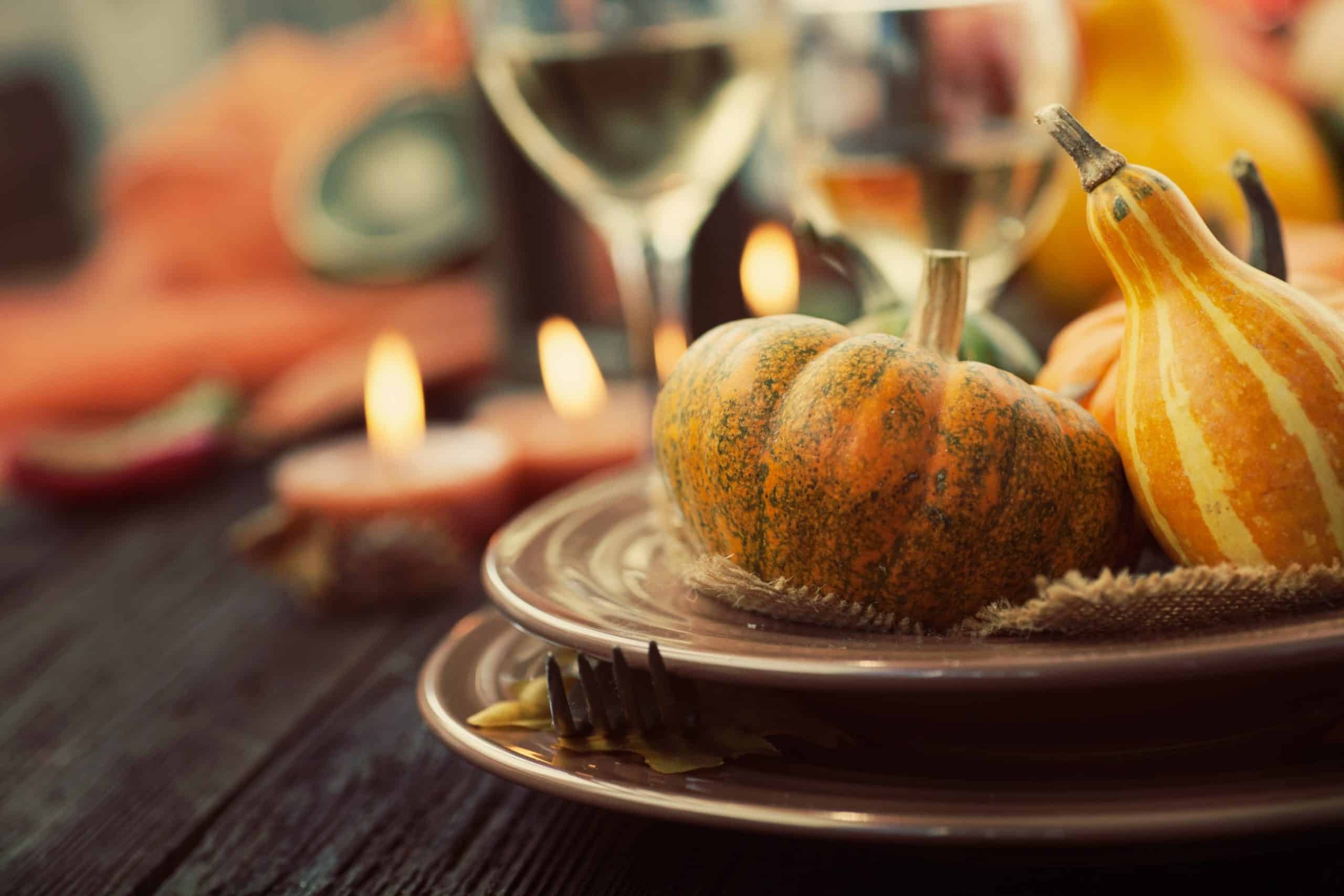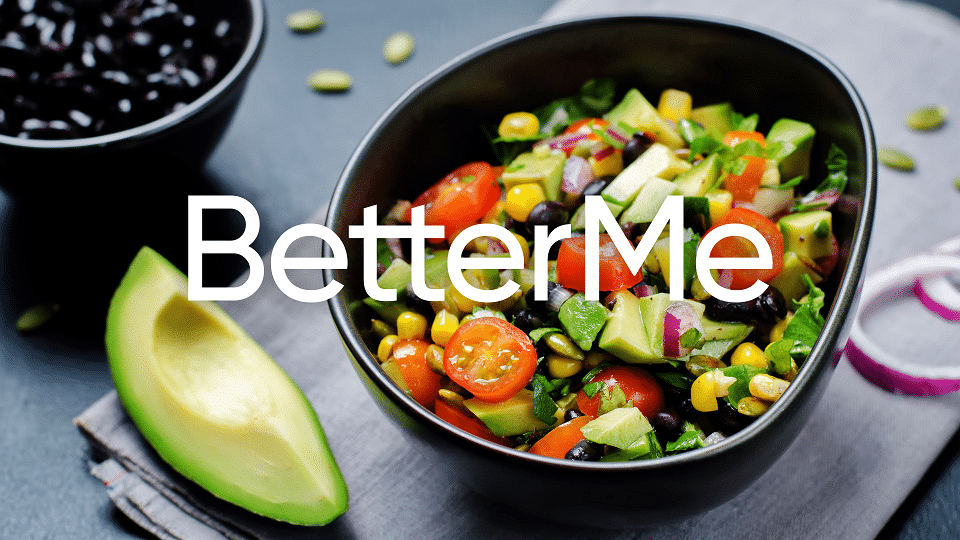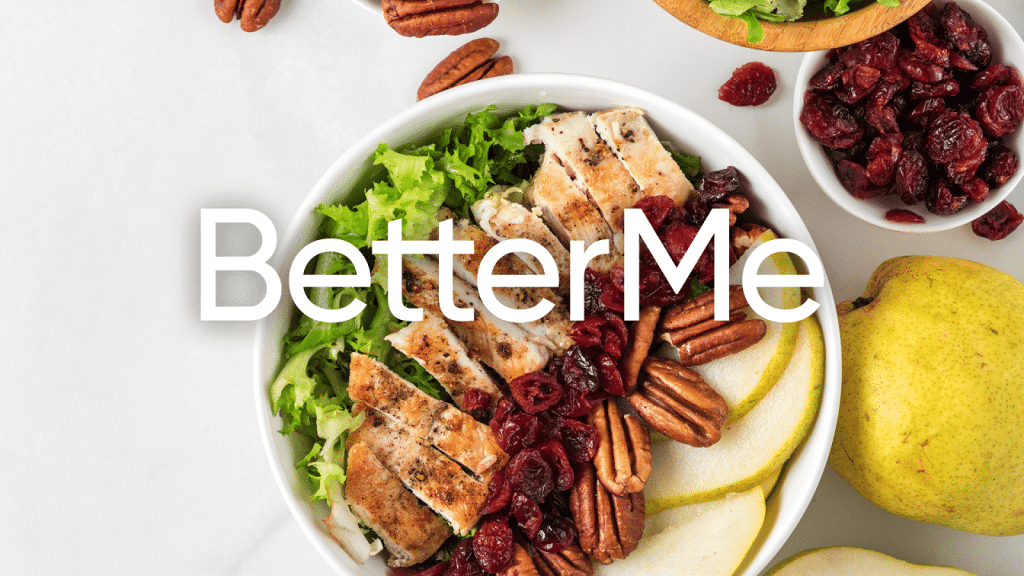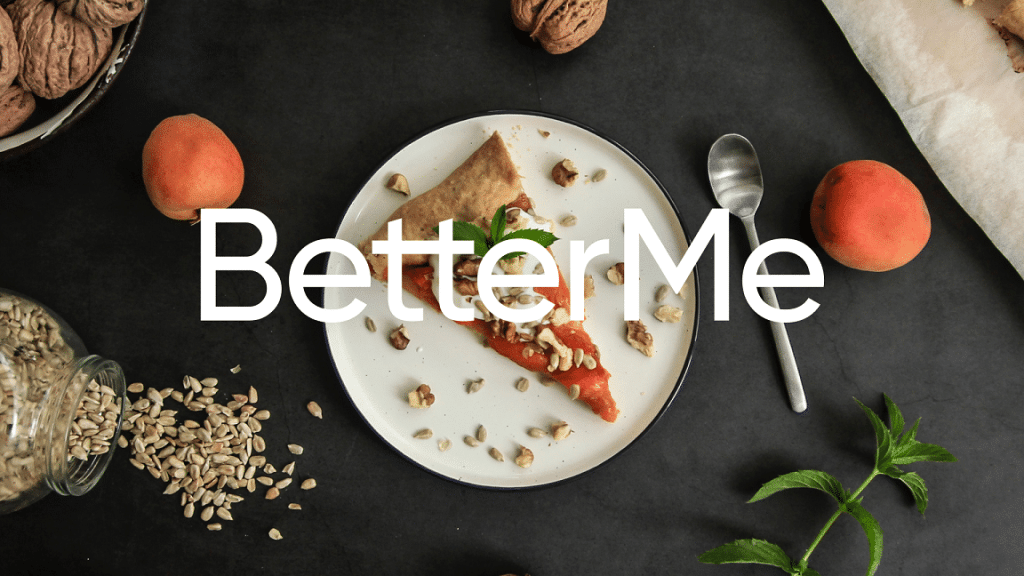Thanksgiving goes hand in hand with family, friends, and food– lots of food! And while indulging in your favorite holiday dishes is part of the fun, it’s important to remember that not all foods are created equal when it comes to our health. If you spend the post-holiday season feeling stuffed and sluggish, you’re not alone. According to a recent survey, nearly 75% of Americans say they gain weight during the holidays (3). Even worse, many of us never lose that holiday weight, adding an average of one pound per year from Thanksgiving to New Year’s. Weight loss isn’t the only health concern when it comes to holiday eating. There’s overeating, drinking alcohol, and eating unhealthy foods that can also lead to indigestion, heartburn, and other unpleasant side effects. But don’t despair! With a little planning and moderation, you can enjoy all your favorite Thanksgiving foods without sabotaging your health. Let’s take a look at the best and worst foods to eat on Thanksgiving, as well as some tips for staying healthy during the holiday season.
Get your personalized
meal plan!
What Is The Healthiest Food For Thanksgiving?
Wondering what to pick out on your Thanksgiving plate? When it comes to healthy eating, not all Thanksgiving foods are created equal.
Here are the best and worst foods to eat on Thanksgiving, according to dietitians and nutritionists:
Skinless, Oven Baked Turkey
Turkey is a Thanksgiving staple, and there’s no need to give it up in the name of health. Turkey is a lean protein that’s loaded with nutrients like selenium, zinc, and phosphorus (7). However, it is advised that you should remove the skin before eating to reduce the amount of saturated fat. Also, steer clear of fried turkey, which is high in unhealthy fats.
Low-Sugar Cranberry Sauce
Cranberry sauce is a good source of vitamin C, an antioxidant that helps boost the immune system (5). Choose organic, low-sugar canned cranberry sauce over those that are made with sugar or high-fructose corn syrup. Alternatively, you can also make your own cranberry sauce with fresh or frozen cranberries, orange juice, and a little honey.
Read More: Fun Weight Loss Challenge Ideas To Help Kickstart Your Healthy Lifestyle Journey
Cauliflower Mashed Potatoes
Mashed potatoes are a classic Thanksgiving side dish, but they don’t have to be unhealthy. For a lighter mashed potato, use skim milk instead of whole milk or cream. You can also add extra flavor with low-fat sour cream, chives, or garlic.
If you’re keeping tabs on your carbs, try mashed cauliflower as a healthier alternative. Cauliflower is a low-carb vegetable that’s packed with fiber, vitamins, and minerals.
Green Beans
Green beans are a healthy addition to any Thanksgiving feast (1). They’re low in calories and a good source of fiber and vitamins A, C, and K. Rather than have them in a casserole that’s loaded with cream and fried onions, try steaming or roasting them with a little olive oil and sea salt.
Sweet Potatoes
Sweet potatoes are a healthier alternative to regular potatoes and are loaded with vitamins A, C, and B6. They’re also a good source of fiber, potassium, and manganese (9). For a lighter sweet potato dish, bake or steam them instead of frying them.
Crustless Pumpkin Pie
Pumpkin pie is a Thanksgiving favorite, but it’s often loaded with sugar, fat, and calories.
To make a healthier pumpkin pie, you can:
- Skip the crust. Wheat flour crusts add empty calories and carbs.
- Use brown sugar or honey, instead of white sugar.
- Make your own pumpkin puree. Canned pumpkin pie filling often has added sugar.
- Choose evaporated milk, it has less fat than heavy cream.
Carrots, Peas, And Other Brightly Colored Vegetables
Brightly colored vegetables like carrots, peas, and Brussel sprouts have lots of vitamins, minerals, and antioxidants (4).
They’re also low in calories and a good source of fiber. So load up your plate with these healthy Thanksgiving foods. Cooking these vegetables by steaming, roasting, or grilling with a little bit of olive oil is preferable as it helps retain more of their nutrients.
If you’ve mustered up the courage to crush your weight loss goal, let Betterme take the sting out of this demanding process. Our app will help you restructure your habits, remold your life and crank up your fitness results!
What Are The Unhealthiest Thanksgiving Foods?
While some traditional Thanksgiving foods are perfectly healthy, others are loaded with unhealthy ingredients that can contribute to weight gain, heart disease, and other chronic health conditions.
If you’re trying to eat a healthier diet this holiday season, be sure to avoid these unhealthiest Thanksgiving foods:
1. Gravy
Gravy is the star of many Thanksgiving dishes, but it’s also one of the unhealthiest holiday foods you can eat. Most gravies are made with fat, flour, and salt, which can be contributing factors to weight gain and other health problems (8).
If you’re looking for a healthier gravy option, try making your own at home using healthy ingredients like chicken or turkey stock, low-fat milk, and herbs. Alternatively, skip the gravy for your Thanksgiving feast altogether.
2. Mashed Potatoes
Mashed potatoes are another Thanksgiving staple that can be surprisingly unhealthy. Most recipes call for large amounts of butter, cream, and salt, which can all add up to a lot of calories and unhealthy saturated fat.
3. Sweetened Cranberry Sauce
Whether you buy it in a can or make it from scratch, sweetened cranberry sauce is loaded with sugar and calories. A healthier option is to make your own cranberry sauce using fresh or frozen cranberries, a little sugar, and some orange juice. This will give you all the flavor of traditional cranberry sauce without all the extra calories.
4. Green Bean Casserole
This Thanksgiving side dish is usually made with canned green beans, cream of mushroom soup, fried onions, and lots of cheese.
While it may be delicious, it’s also high in calories, fat, and sodium. A healthier option is to eat steamed or roasted green beans on their own or with a light dressing.
5. Store-Bought Pumpkin Pie
Pumpkin pie is often heralded as a healthy dessert option, but most store-bought and homemade pies are actually quite unhealthy. They’re usually made with lots of sugar, butter, and refined flour, contributing to weight gain.
6. Alcohol
While alcohol itself isn’t necessarily unhealthy, overindulging can lead to weight gain, dehydration, and other health problems (2). If you’re drinking alcohol this Thanksgiving, be sure to do so in moderation and make sure to drink plenty of water.
Read More: Healthy Donut Recipe Baked: No Refined Sugar
7. Pecan Pie
Pecan pie is a Thanksgiving dessert that’s often loaded with sugar, butter, and corn syrup. While it may be delicious, it’s also high in calories and unhealthy fat.
Snacking on a handful of pecans, or using the toasted nuts as a topping for yogurt or oatmeal, is a healthier way to enjoy this holiday favorite.
8. Candied Yams
Yams in their natural state are pretty healthy (2), but when they’re covered in marshmallows and syrup, they become an unhealthy dessert. That’s what candied yams are– yams that are cooked with sugar, syrup, butter, and marshmallows. A healthier way to enjoy yams is to roast them in the oven with a little olive oil and sea salt.
9. Stuffing
Stuffing is usually made with white bread, which is high in refined carbs and low in nutrients. It’s also often loaded with unhealthy ingredients like sausage, butter, and cream. A healthier stuffing recipe would use whole wheat bread or quinoa, healthy fats like olive oil, and lots of fresh herbs and vegetables.
10. Macaroni And Cheese
Macaroni and cheese is a classic Thanksgiving side dish, but it’s also one of the unhealthiest. Most recipes call for lots of cheese, butter, and cream, which can all add up to a lot of calories and unhealthy saturated fat. A healthier macaroni and cheese recipe would use low-fat cheese and milk, whole wheat pasta, and healthy toppings like roasted broccoli or tomatoes.
11. White Flour Rolls
Rolls are often made with white flour, which is low in nutrients and can cause blood sugar spikes. A healthier option is to make your own rolls at home using whole wheat flour or another whole grain flour. You can also look for store-bought rolls that are made with whole grains.
How Do I Not Gain Weight On Thanksgiving?
Use these tips for eating healthy during Thanksgiving:
1. Don’t Go To Thanksgiving Dinner Starving
If you’re famished, you’re more likely to overeat. Eat a light snack beforehand so you’re not tempted to gorge yourself.
2. Fill Your Plate With Veggies First
Vegetables are low in calories and high in fiber (11), so they’ll help you fill up without packing on the pounds. A good way to do this is to fill half your plate with veggies, and the other half with a smaller portion of the main dish and sides.
3. Limit Your Portion Sizes
It’s easy to get carried away when there’s a bountiful feast in front of you, but remember to practice moderation. Fill your plate with a small amount of each food and save room for dessert. Also, remember to keep starchy veggies to a minimum, as they’re higher in calories.
4. Go For Lighter Appetizers
Instead of fried appetizers, choose ones that are baked or grilled. However, if you’re really looking to cut back on calories, skip the appetizers altogether.
5. Avoid Traditional Recipes Whenever Possible
Opt for recipes that are lower in fat, calories, and unhealthy ingredients. There are plenty of healthy Thanksgiving recipes available online.
6. Drink Water
Staying hydrated will help you feel full and prevent you from overeating (12). Make sure to drink plenty of water throughout the day, both before and after your Thanksgiving meal.
7. Avoid Alcohol
Alcohol can lower your inhibitions and lead to overeating. It’s also high in calories, so it’s best to avoid it if you’re trying to stay healthy (2). If you do drink, stick to moderation and be sure to drink plenty of water as well.
8. Don’t Drink Your Calories
Many people don’t realize how many calories are in their favorite holiday drinks. Eggnog, for example, can have over 500 calories per cup! If you’re watching your weight, skip the festive beverages and stick to water or unsweetened tea.
Reasons why BetterMe is a safe bet: a wide range of calorie-blasting workouts, finger-licking recipes, 24/7 support, challenges that’ll keep you on your best game, and that just scratches the surface! Start using our app and watch the magic happen.
9. Don’t Eat Until You’re Stuffed
Pay attention to your body’s cues and stop eating when you’re no longer hungry. It takes 20 minutes for your brain to register that you’re full, so slow down and savor your meal. After clearing your plate, wait a few minutes before getting seconds.
10. If You’re Not Hosting, Bring A Healthy Dish
If you’re not in charge of cooking the Thanksgiving feast, bring a healthy dish to share. This way, you’ll know there’s at least one healthy option available. Some ideal dishes include salads, roasted vegetables, or whole grain side dishes.
11. Get Moving
Exercise is a great way to offset any weight gain from your Thanksgiving feast (6). Go for a walk after dinner or play football with family or some turkey-themed games with the kids. Just make sure to get moving and have fun!
What To Do If You Binged On Thanksgiving?
If you overate on Thanksgiving, don’t beat yourself up. It’s not the end of the world, and you can get back on track with healthy eating.
Here are a few tips to help you recover:
1. Resist The Urge To “Detox”
Your body is perfectly capable of detoxing on its own, so there’s no need for a juice cleanse or other extreme measures. Just get back to eating healthy, whole foods and give your body time to adjust.
2. Drink Plenty Of Water
Water will help flush out your system and rehydrate your body after a big meal. It will also help you feel fuller, so you’re less likely to overeat (12).
3. Eat Smaller Meals
To avoid feeling overly full, eat smaller meals for the next few days. Focus on healthy, nutrient-rich foods and give your digestive system a break.
4. Get Moving
Exercise is a great way to boost your metabolism and burn off any extra calories (6). Even a moderate amount of activity can make a difference, so get up and move!
5. Don’t Dwell On It
Remember that one bad meal won’t ruin your health, and it’s not worth stressing over. Just get back on track with healthy eating and don’t let it derail your progress.
The Bottom Line
Thanksgiving is a time to enjoy family, friends, and good food. But it doesn’t have to be an unhealthy holiday. With these tips, you can make healthier choices and avoid overeating. And if you do overindulge– don’t worry! Just get back on track with healthy eating and exercise.
DISCLAIMER:
This article is intended for general informational purposes only and does not serve to address individual circumstances. It is not a substitute for professional advice or help and should not be relied on for making any kind of decision-making. Any action taken as a direct or indirect result of the information in this article is entirely at your own risk and is your sole responsibility.
BetterMe, its content staff, and its medical advisors accept no responsibility for inaccuracies, errors, misstatements, inconsistencies, or omissions and specifically disclaim any liability, loss or risk, personal, professional or otherwise, which may be incurred as a consequence, directly or indirectly, of the use and/or application of any content.
You should always seek the advice of your physician or other qualified health provider with any questions you may have regarding a medical condition or your specific situation. Never disregard professional medical advice or delay seeking it because of BetterMe content. If you suspect or think you may have a medical emergency, call your doctor.
SOURCES:
- 6 Health Benefits of Green Beans (2017,ebpcooh.org.uk)
- Alcohol Consumption and Obesity: An Update (2015,nih.gov)
- A Prospective Study of Holiday Weight Gain (2015,nih.gov)
- A Review of the Science of Colorful, Plant-Based Food and Practical Strategies for “Eating the Rainbow (2019,nih.gov)
- Cranberry (2011,nih.gov)
- Physical Activity Plays an Important Role in Body Weight Regulation (2011,nih.gov)
- Role of poultry meat in a balanced diet aimed at maintaining health and wellbeing: an Italian consensus document (2015,nih.gov)
- Sodium, Added Sugar and Saturated Fat Intake in Relation to Mortality and Cardiovascular Disease Events in Adults (2020,nih.gov)
- Sweet potato: a review of its past, present, and future role in human nutrition (2007,nih.gov)
- The Dioscorea Genus (Yam)—An Appraisal of Nutritional and Therapeutic Potentials (2020,nih.gov)
- The Health Benefits of Fruits and Vegetables (2020,nih.gov)
- Water, Hydration and Health (2011,nih.gov)












